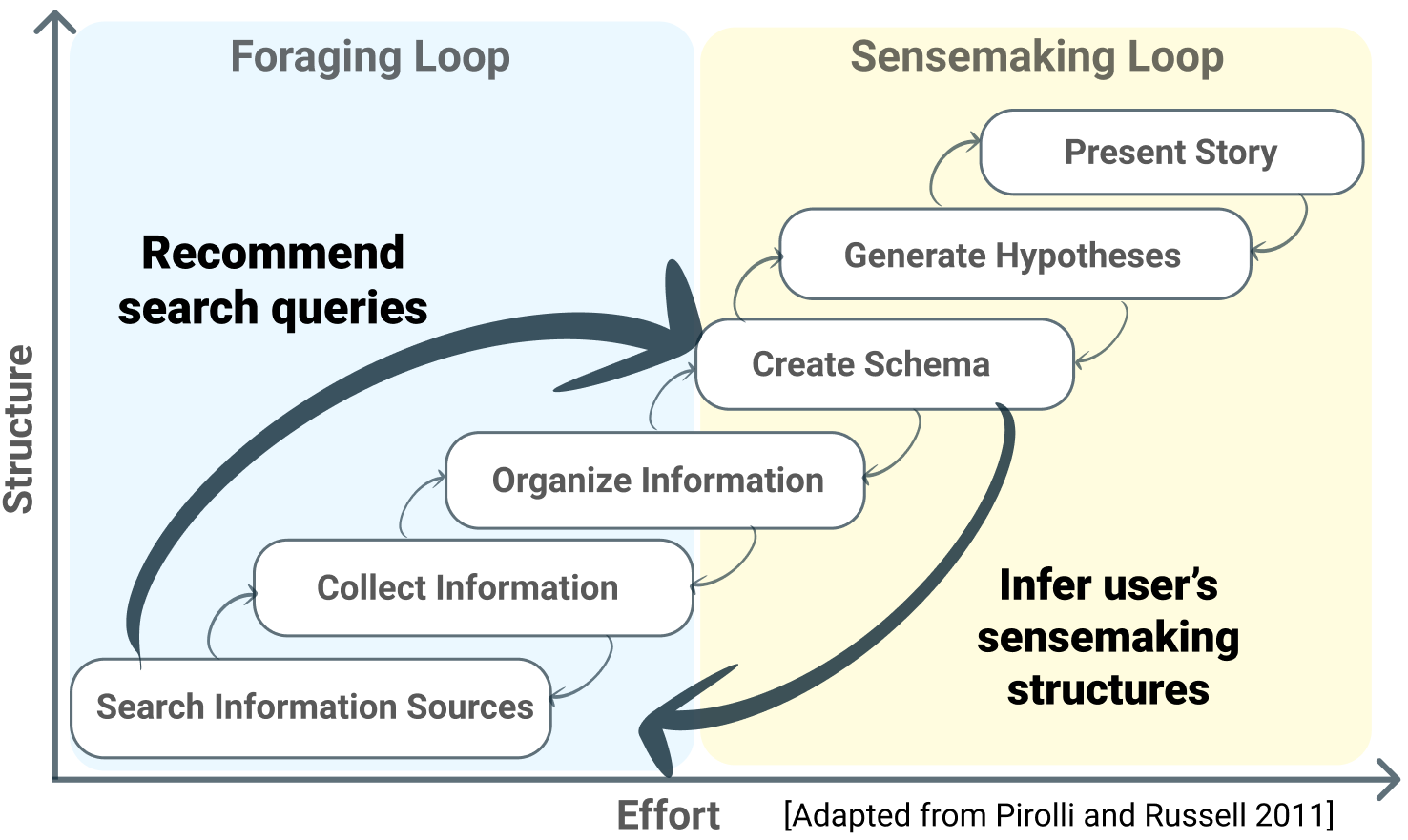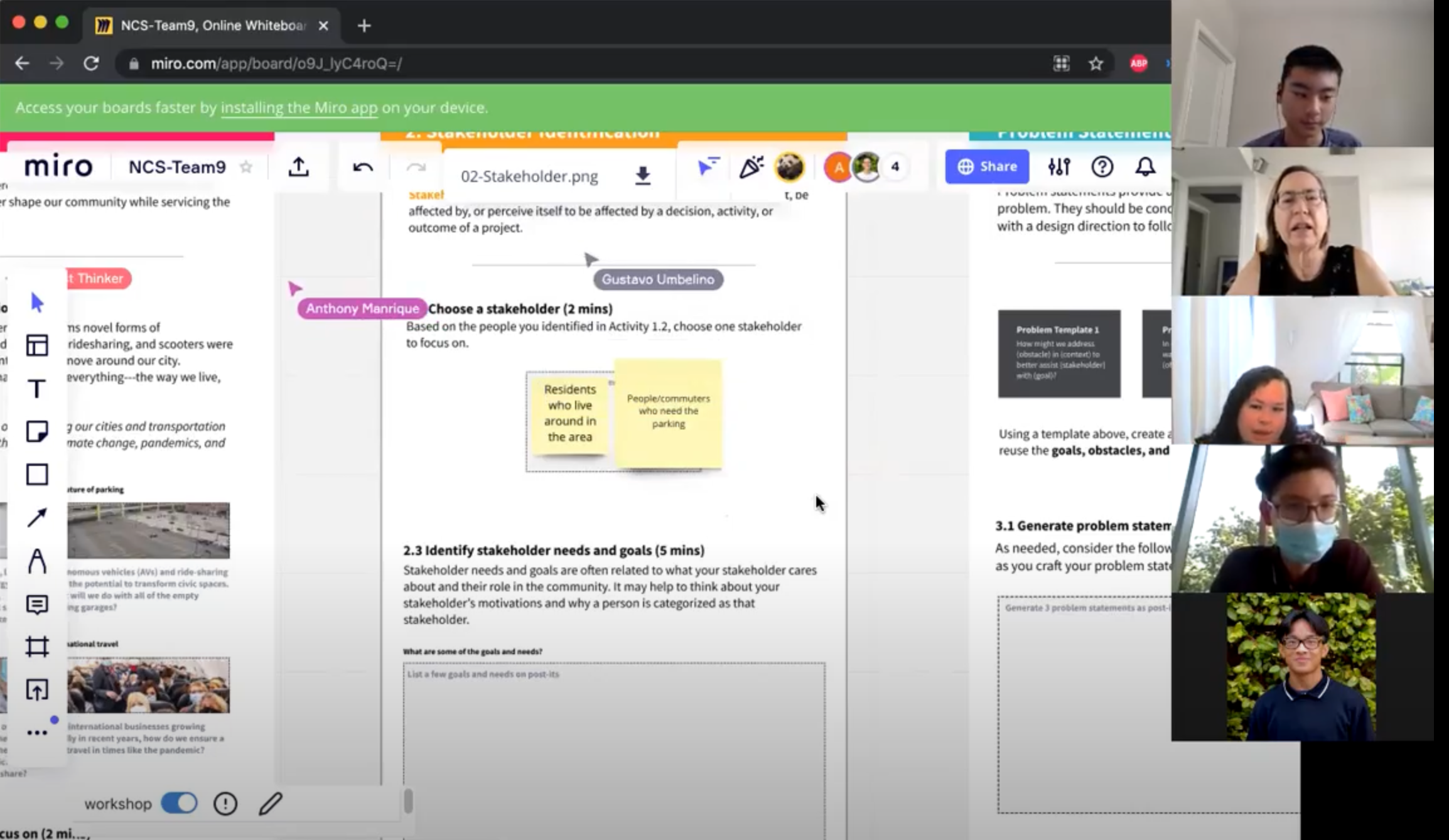The practice of design has been shifting from an expert-led endeavor towards community-driven processes—such as co-design, value-sensitive design, citizen-led science, end-user programming, DIY making, community-based participatory research, and lead-user innovation— that seek to empower diverse stakeholders. This project seeks to create novel socio-technical environments that amplify communities’ ability to address their own challenges. Towards this goal, our group founded the Design for San Diego (d4sd.org) initiative, an innovation challenge structured around the human-centered design process that seeks to solve complex civic problems by engaging hundreds of young innovators, domain experts, and key decision makers in San Diego. With support from the UCSD Design Lab, the City of San Diego, the Port of San Diego, SANDAG, the National Science Foundation, the Design Forward Alliance, and SCALE SD, the D4SD initiative has been successful at promoting diversity and equitable solutions for problems related to mobility, public health, sustainability, and housing. Students interested in getting involved in this project may send an email introduction and resume to Steven Dow.
Search tools provide access to the world’s largest repository of knowledge. However, when exploring vast new areas of information, people often struggle to articulate useful search terms: they have not yet learned domain-specific language that could help them translate their fuzzy goals into concrete queries. Current search tools are optimized to find particular information during a single session with a single user, and they lack access to the rich contextual workflows where information is used. Our project innovates novel computational and interaction techniques that attempt to more tightly integrate information foraging and sensemaking, including (1) recommending queries based on patterns and gaps in notes to help individuals get more familiar with domain specific language, (2) embedding different types of search suggestions within users’ sensemaking schemas, (3) leveraging users’ notes to highlight new information in web search results, and (4) supporting more effective collaboration on exploratory search by coordinating around shared representations. If you are interested in learning more or getting involved on this project, reach out to Srishti Palani.
Iteration is one of the key components in any creative process. Increasingly, creators like designers, developers, and writers adopt online community knowledge to iterate on their work. This community knowledge— from simple design examples to complex GenAIs trained on a community’s existing data—has the potential to boost creativity. However, the existing platforms that present this community knowledge are mostly designed for showcasing, rather than for sparking creative thinking or reflecting on users’ own work for further improvement. We apply a mixed methods approach to investigate how users build on this community knowledge (e.g., via example repositories, the Internet, LLMs, etc.) and based on these insights, we develop AI-empowered creativity support tools to help creators iterate on ideas. If you are interested in getting involved, send email to Tone Xu.
Our research explores how innovators obtain and make sense of diverse feedback from potential stakeholders or customers. We have developed numerous tools to support feedback exchange, such as scaffolding to help novices to perform design critique like experts, recruiting feedback providers through social media or online work forums, visualizing feedback to make sense of and prioritize changes for future iterations, and encapsulating prior designs and their feedback as an interactive gallery to support vicarious learning. The goal is to enable designers of all stripes to obtain authentic, honest, and knowledgeable feedback with clear and actionable steps forward. We are always on the lookout for smart undergraduates or master’s students to contribute to aid in development of interactive tools or help us run/analyze online experiments. If you are interested in learning more or getting involved on this project, reach out to Grace Yen.
To develop more inclusive solutions for communities, we need to create and support design processes that allow more people to get involved. Participatory design and related approaches have opened up design to more people, but still largely depend on co-located meetings that create inequitable barriers for participation. Our research explores how tools for remote collaboration can be adapted to support community-driven design practices by developing interactive scaffolding that helps novices think and collaborate more like experts. We develop web-based tools that encourage members to articulate design-related information and to reflect on the problems, solutions, and stakeholders explored by others in a community. Undergraduates and master’s students who are interested in getting involved, please email your resume and a short description of your experience with web development to Dr. Stephen MacNeil.
Synthesis is the practice of integrating, organizing, filtering, evaluating, and compiling information such that it can be acted upon. Limitations on time, resources, and human memory place constraints on how much information can be synthesized by one person. This project explores how processes for synthesis may be distributed across people and augmented by machine learning techniques. We study how humans perform complex sense-making tasks like collecting, clustering, labelling, and re-representing unstructured information and we create workflows and tools to amplify this important and pervasive activity. Undergraduate or masters students who would like to aid in development of real-time interactive tools for collaborative synthesis and/or help us run experiments to test different approaches, please email your resume and a short description of your research experience to Steven Dow.
Effective and diverse teams can accomplish great things. However, forming and sustaining successful teams can be difficult, especially for distributed short-term work. Our research explores how we might form and strengthen small-group interactions through the concept of team dating, where people interact on brief tasks before working with a dedicated partner for longer, more complex tasks. We have conducted studies that show the efficacy of this approach and created tools to enable team dating in online and co-located settings like classrooms. Undergraduate or masters students who would like to get involved in developing tools to support team formation and group work, please email your resume and a short description of your research experience to Steven Dow.









